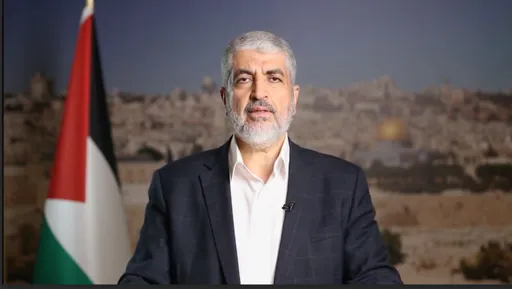Last October, US Secretary of State Michael Pompeo went to Greece to sign a Defense Cooperation Agreement. The agreement stipulates increased military use of Greek military bases and facilities in Larissa, Stefanovikio, and Alexandroupolis with the US and NATO.
The agreement also outlines the potential joint use of infrastructure and other facilities at the US naval base at Souda Bay on the island of Crete. It is already known that the US Air Force is currently using American MQ-9 Reaper-type UAVs in Larissa.
Secretary of State Pompeo has also previously made it clear that the steps taken by Ankara in the Eastern Mediterranean were unacceptable, and that exploration missions must adhere to existing rules.
As much as it may appear that the US and Turkey are beginning a new phase on Libya, other actors in the region are doing everything in their power to prevent Turkish-American cooperation in Libya.
With tensions increasing in the eastern Mediterranean after Turkey's Navtex announcement, the Pentagon has activated the use of military bases and facilities in Alexandroupolis, which is just 30 kilometres from Turkish borders.
Even though it is mentioned that NATO would use these bases, news came out about raised Byzantine and Greek flags as US military vessels approached the port.
Based on official sources, however, those reports were untrue. First of all, the ship belongs to a transportation company that has a contract with the US Navy, not to the US Navy itself.
In addition, the Byzantine and Greek flags were raised on the Greek trailer ship accompanying the transport ship. When some Turkish media reported that the American ship had raised Byzantine and Greek flags, all eyes immediately turned to Alexandroupolis.
The reason the US set up a base in Alexandroupolis should be examined carefully. We can interpret this as Washington wanting to create a possible alternative for Turkey and using it as a base that is closer to Russia.
The statements made recently by Geoffrey Pyatt, the United States Ambassador to Greece, drew reactions both in Turkey and the Turkish-American Community.
Ambassador Pyatt stated that “the Greek Islands are entitled to continental shelves and exclusive economic zone rights, as in the mainland,” calling Turkey to “stop the operations which increase tension in the region.” Though he made this call, we still don’t know what factors he based this statement on. I believe that soon we will see clearer steps.
Hasan Ozkan from the Rumelia Balkan Strategic Research Center stated that the United States’ move to set up a base in Alexandroupolis is against the Treaty of Lausanne.
According to him, “Alexandroupolis is within the area covering 30 km from the border which must be demilitarised. It is a meaningful attempt to have a US base set up in this sensitive area where Western Thrace Turks are resident, whose right of self-government has been violated by Greece for 100 years by disregarding Lausanne and to establish a military buffer zone between Turkey and Komotini and Xanthi, where there is a dense population of Turkish minority living.”
This led to questions, one after another.
I believe that conducting a study in Alexandroupolis with different goals will damage the Turkish-American relationship when there is already tension between Turkey and Greece in the Eastern Mediterranean.
Having significant tensions with Turkey in recent years, the US administration is strengthening its political, economic, and military cooperation with Greece.
Everybody agrees on this issue, but despite the ups and downs, Turkey and the US have an old unbreakable relationship due to the strategic location of the former.
Following the Hagia Sophia decision of Turkey, Greece was already panicking after it was announced that the Oruc Reis research vessel would carry out a new seismic exploration activity between Rhodes and Meis with NAVTEX (Notice to all Mariners).
Cem Gurdeniz, a retired Turkish admiral we previously hosted in Washington DC, said that neither Merkel nor Trump would accept Athen’s demand for an area of 50,000 km for an island with a 20 km proximity. I would like to remind you that these countries may persuade Greece by stating that “Are you kidding? Are you playing with fire?”
The bottom line is that Greece lives in a dream world with their wishes.
I think the fact that the US needs to be more transparent and open in every exercise carried on with Greece, especially Alexandroupolis, is an important point in terms of not stretching relations with Turkey even more.























